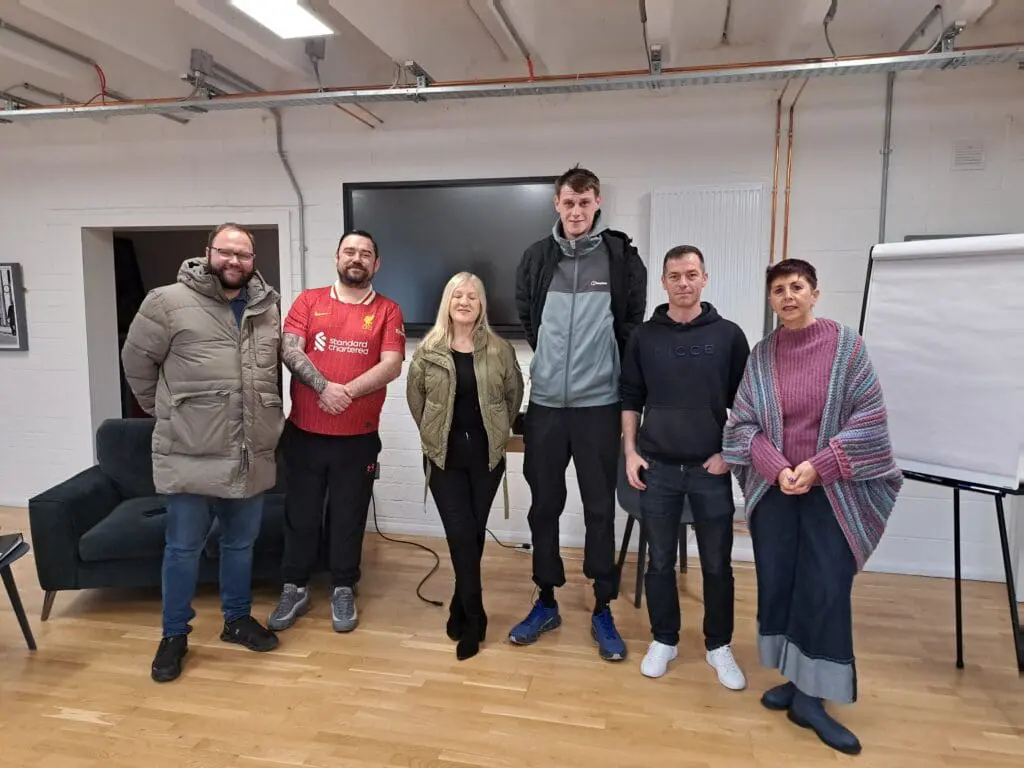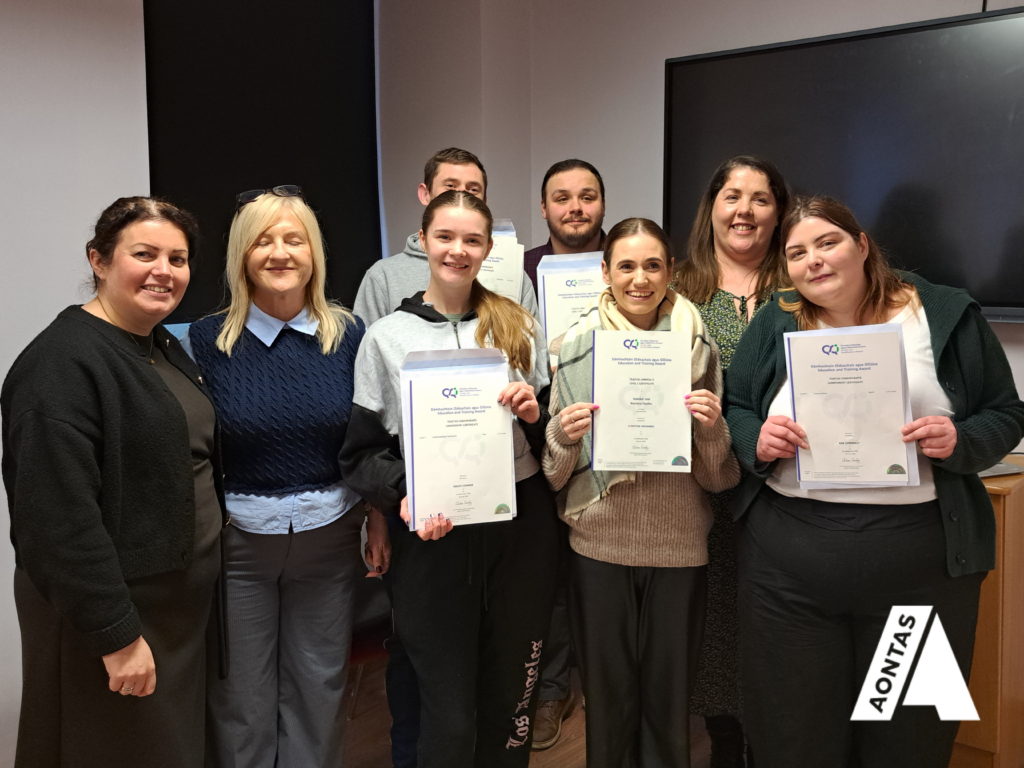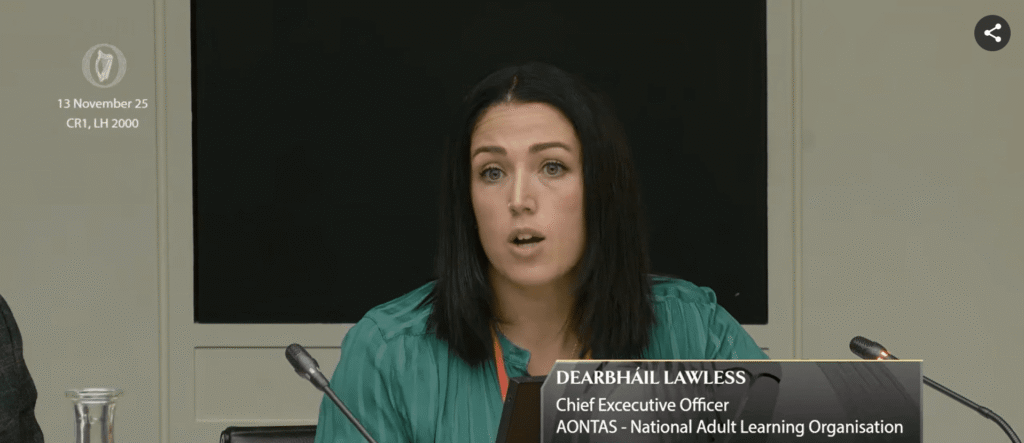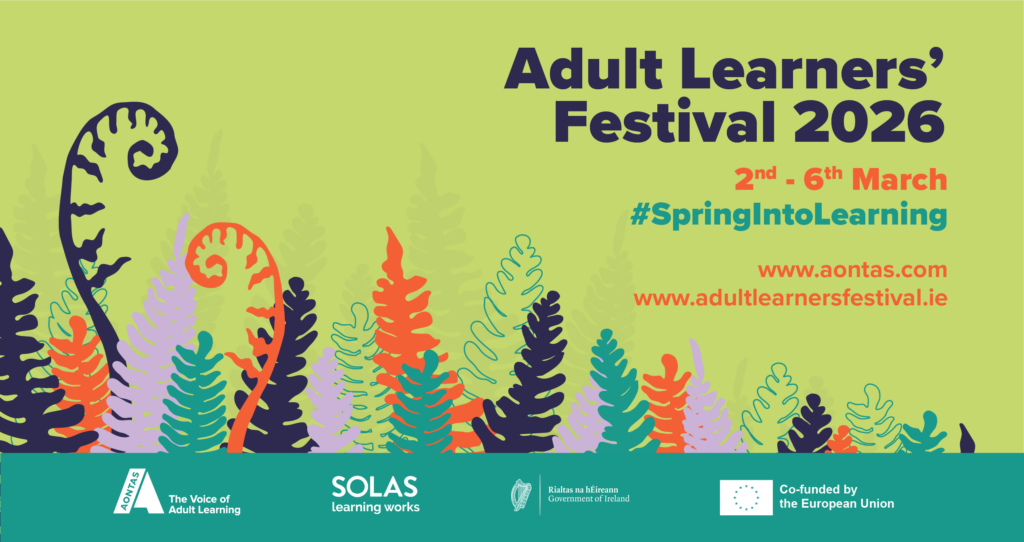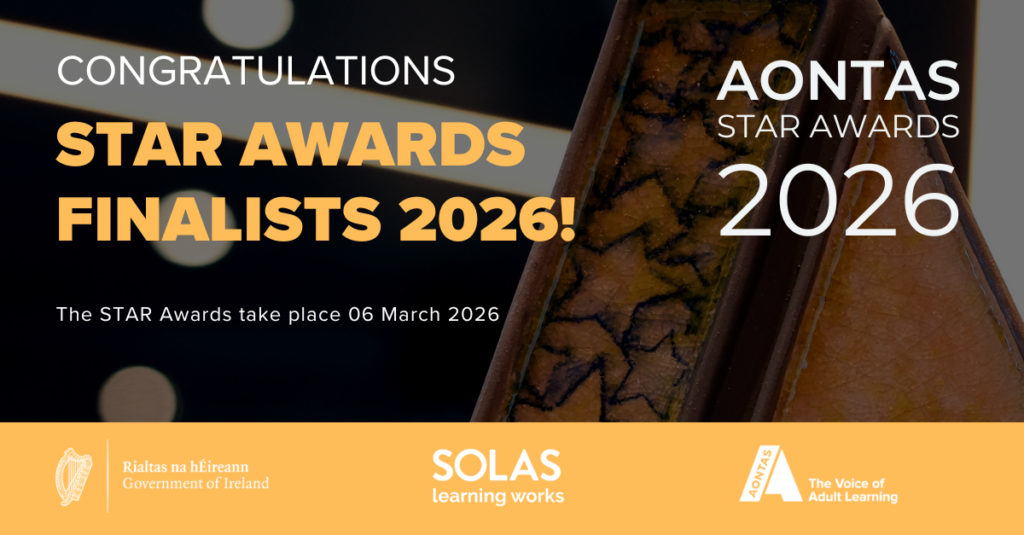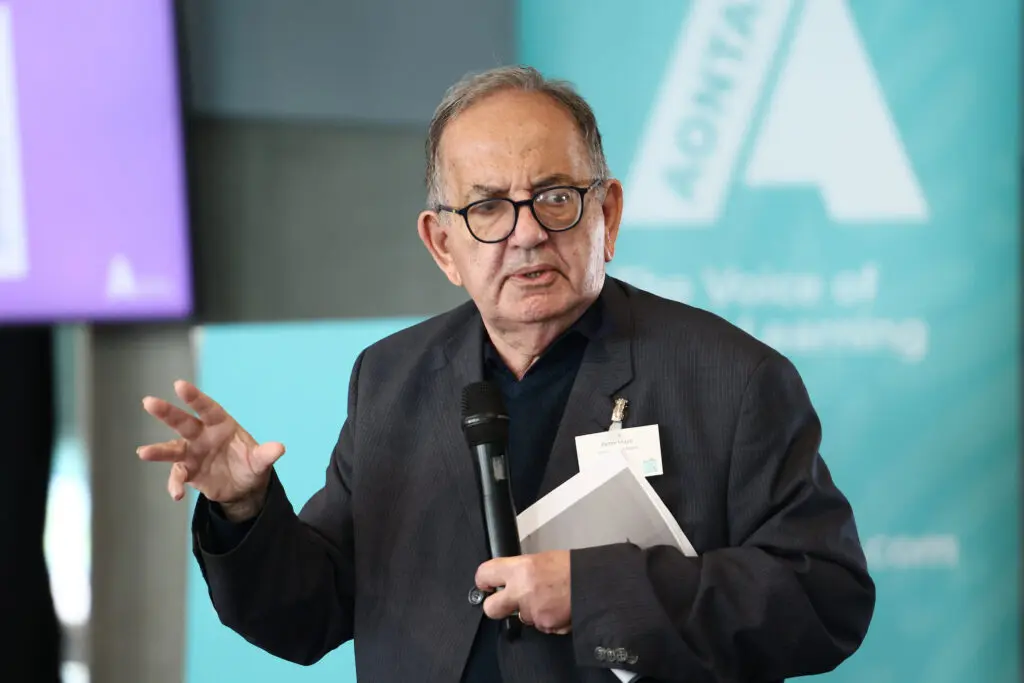I visited them recently as they are a long-term member of the Community Education Network (CEN), to meet with their staff and participants and catch up on the work ongoing there.
The centre is a shining example of the impact of community education on people’s lives, offering accredited and non-accredited courses, including cookery and a programme on developing soft skills.
They also run a Community Employment Scheme, academic support, and work experience opportunities.
They help learners build their CVs and gain practical experience. The Programme Manager Mark Kavanagh told me that this is not for everyone, but the opportunity is there.
Many people who participate in Matt Talbot courses and classes grew up in areas of deprivation, and social exclusion and harmful behaviours was normal.
One learner John told me: “Where I grew up, everyone was the same—we had nothing. We didn’t think there was anything wrong with getting involved in drugs or crime; it was the norm. But when you get involved in a place like Matt Talbot and the educational programs here, you realise that life can be different. You are accepted, and you start to believe in yourself, grow in confidence, and it impacts your life, your family, your community, and your children. These programs are an investment in areas that are poor—it can change generations. My kids are looking at me now and asking questions. They know life can be different.”
John has excelled over just nineteen months, completing six QQI-accredited programs, including cookery, facilitation skills, Addiction Studies, and Environmental Sustainability.
He is now pursuing a Level 7 Certificate in Addiction Studies at Maynooth University.
Empowerment, Togetherness, and a Safe Space
The dedicated team at Matt Talbot has four full-time staff, two part-time staff, and several volunteers and have 14 members on the programme.
They seek to support and empower participants to make positive and lasting changes in their lives, families, and communities.
According to Centre Director Gráinne Jennings: “We nurture and help people to be ambitious.”
John has also contributed to the development of an out-of-hours program for the local community, which he co-designed with the support of Mark Kavanagh and the Matt Talbot team.
This peer-to-peer initiative aligns with the centre’s ethos of building on people’s existing skills.
It’s a collaborative timetable designed by both participants and staff. Activities include fishing, hill walking, women’s wellness days, and bowling. This helps participants who are in recovery, who offer suffer from isolation, which can lead to depression and exclusion, which then contributes to substance misuse.
One participant told me that “this can be the hardest time for people recovering from addiction. When you feel most lost, engaging in the program and having something to do can help keep you on track.”
During the visit, participants told me of the transformative power of these activities, but what stood out most to me were the conversations about togetherness, shared experiences, and the safe space where no one judges.
John explained to me that the non-accredited, non-formal programs, like conflict management and resolution, and stress management are the skills people really need:
“These are skills that help us cope with stress and give us strategies to deal with challenges so we’re less likely to turn to drugs as a coping mechanism.”
He has now stepped into a leadership role: “Designing these programs is about how you walk the walk with them and develop a culture where people support each other and build resilience.”
Another former participant, Derek, is now a support worker at Matt Talbot and has developed several programs himself.
And Gerard, who started on a Community Employment Scheme, told me how he spent most of his life in addiction, as did his family.
He said: “When you fail, Matt Talbot is here to support you to get back up again.” He has since worked with various youth groups, gained skills to access funding, and created programs like a fishing project.
The remarkable artwork on the walls of Matt Talbot is a testament to the talents of former participants, including one who went on to study at the National College of Art and Design.

A particularly striking piece, “The Usual Suspects,” depicts young children in a police line-up.
This poignant artwork highlights how people from marginalised areas often feel judged by society.
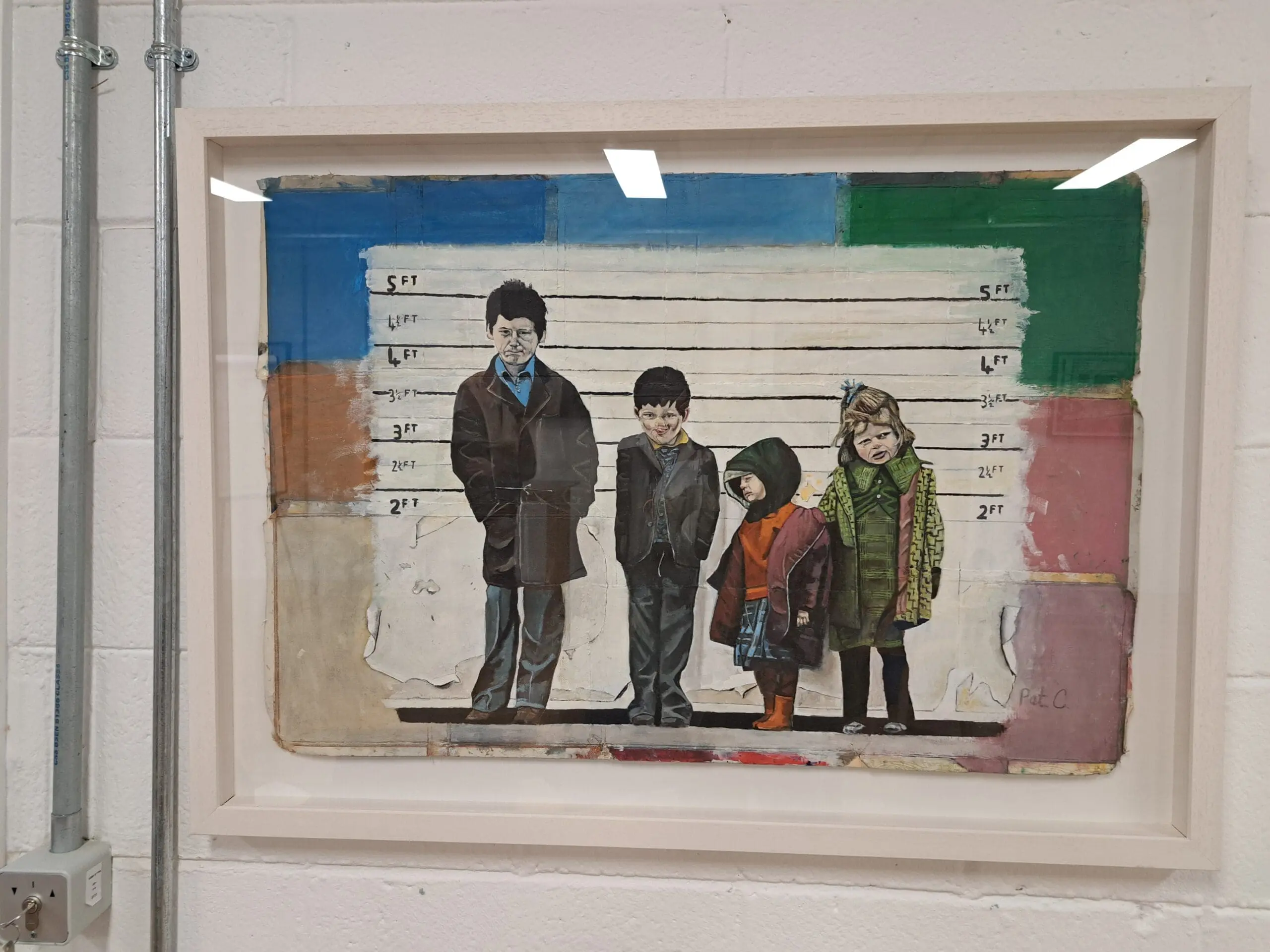
Lack of funding and investment
Our final conversation of the day inevitably turned to funding.
Like many community organisations, Matt Talbot relies on ad hoc funding that is often precarious and short-term, making long-term planning difficult.
Gráinne shared how, during the recession, significant funding cuts left the organisation struggling to cover basic costs like electricity bills.
Despite these challenges, the team persevered. This underscores the dedication of those working in this sector, but it also highlights the need for more stable and guaranteed funding.
As Gráinne and Mark told me, long-term funding is essential for sustainability. This aligns with our ongoing advocacy at AONTAS for sustainable funding for our Community Education Network members.
My visit to the Matt Talbot clearly showed the impact of the work on people’s lives.
Their ability to offer social supports, formal, and non-formal educational programs is a critical investment in communities affected by addiction, unemployment, social exclusion, and hopelessness.
The outcomes—while not always measurable through numbers and metrics—are evident in the lives of participants, their families, and their communities.
As John put it: “We are all human; we all deserve to have a better life.”
Thank you to Gráinne, Mark, and all the participants at Matt Talbot Community Trust.
